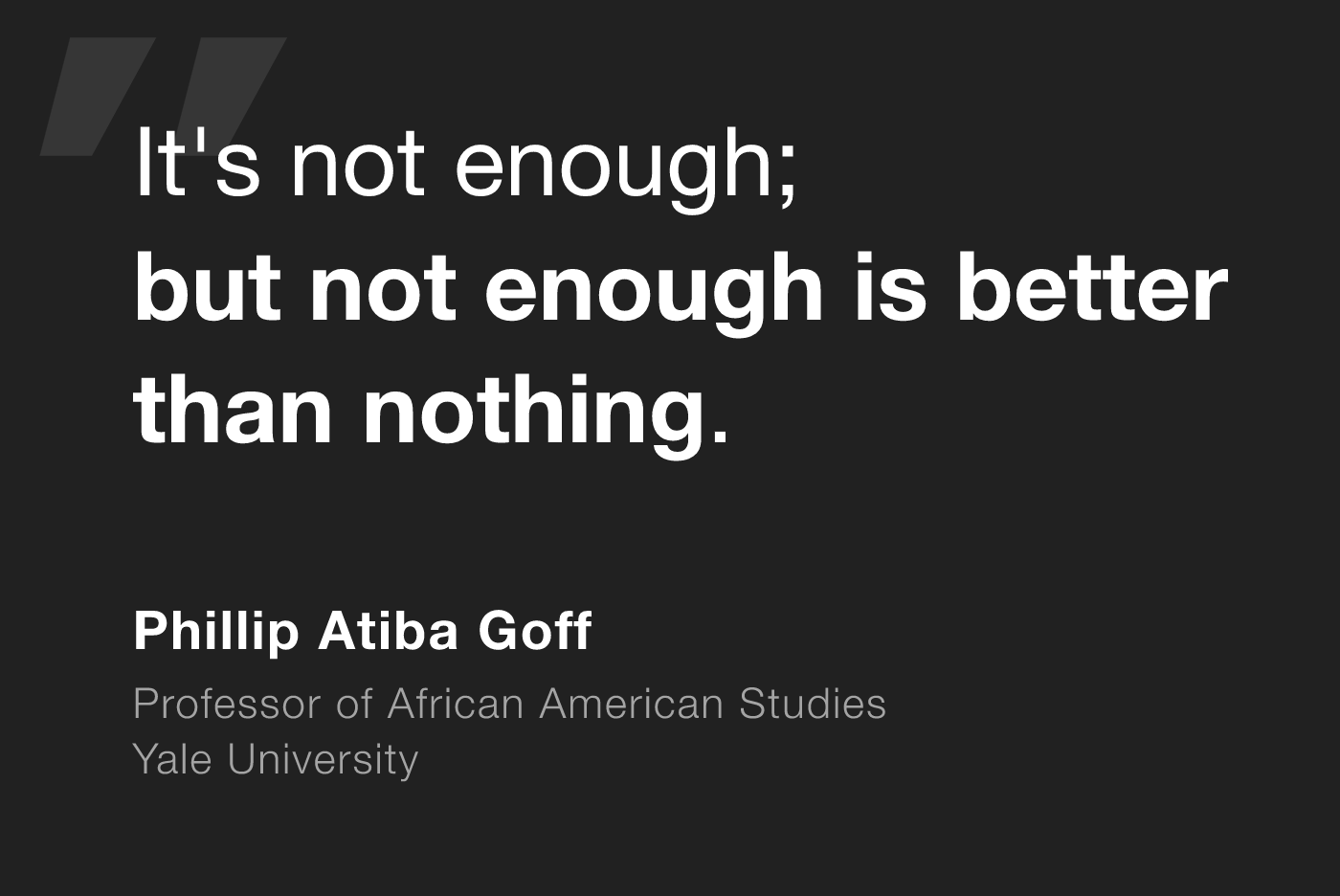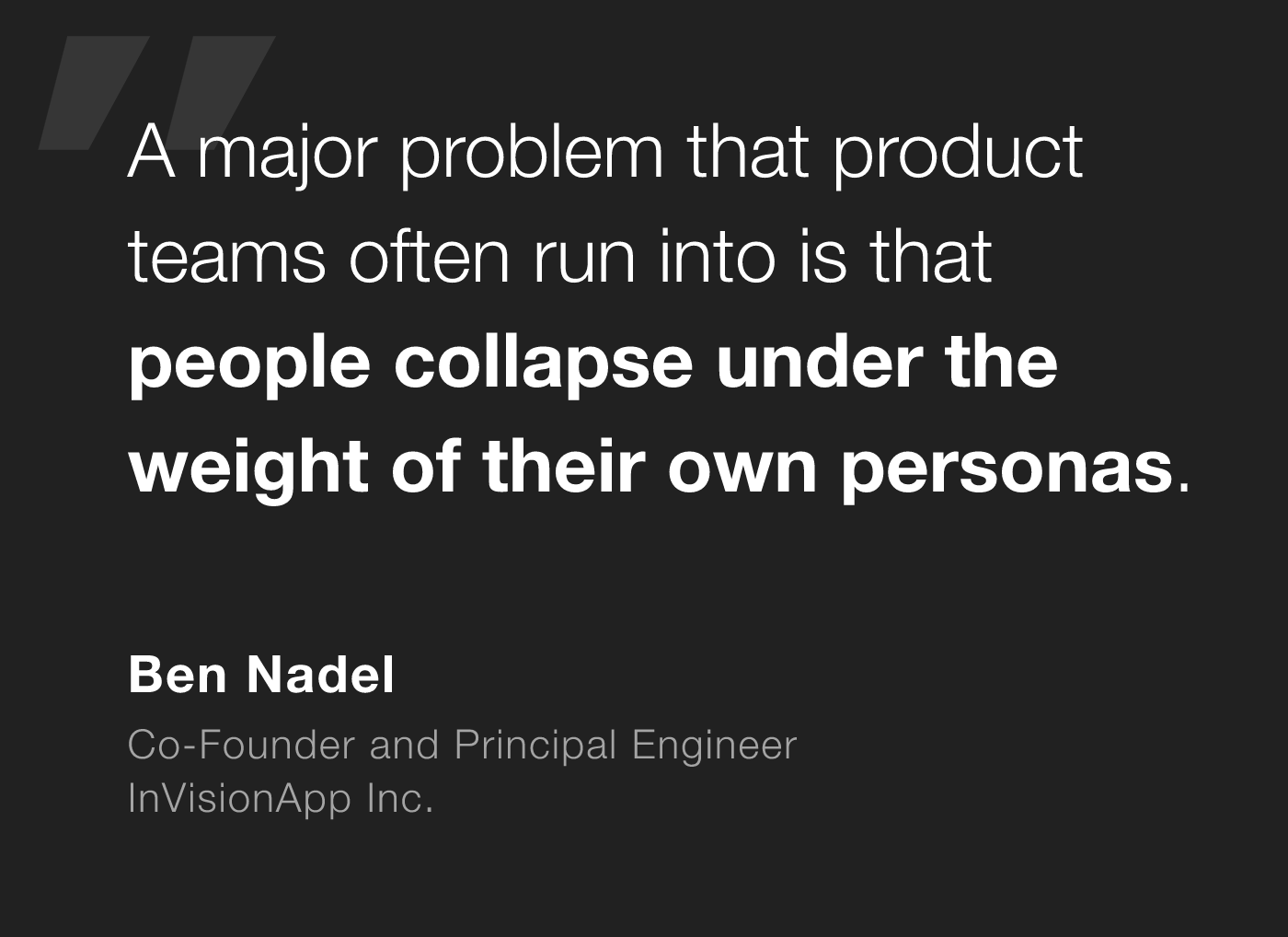It's Not Enough, But Not Enough Is Better Than Nothing
Over the weekend, I was listening to an episode of Hidden Brain on "Changing Behavior, Not Beliefs" when his guest, Phillip Atiba Goff, said something that stopped me in my tracks: "It's not enough; but not enough is better than nothing". It struck me that this phrasing perfectly articulated many of my feelings on product development, a bias towards action, meeting customers where they are, and a general philosophy that shipping value is always better than not shipping value.

I want to build things that make people's jobs easier and their lives better. And while this is a straightforward sentiment, it's rarely an easy task to accomplish. There are so many real-world constraints that prevent us from achieving our goals; however, the one constraint that seems entirely unacceptable is when we get in our own way. Too often, it seems, we end up being our own worst enemy when it comes to shipping product.
I've struggled with this problem for years. And, in reality, nothing I say in this post is substantially different from what I've tried to say in many of my previous posts:
- Product Design And Meeting Customers Where They Are
- The Magic Of Thinking Small: Embracing Limitations As A Strength
- Solutions Don't Have To Work For Everyone
- One Unhappy User Is A Tragedy; One Thousand Unhappy Users Is A Statistic
- Don't Let The Minimum Lovable Product (MLP) Become The Enemy Of The Good
- I Assume That I'll Never Complete My Work, And I Plan Accordingly
- So Mediocre They Can't Ignore Me
- There's What Your Manager Tells You And Then There's What Your Heart Tells You
But, practice makes perfect. And, sometimes, you hear a concept phrased in a slightly different way and for whatever reason, it's that particular phrasing that finally connects. Or, gives you the words you need to more effectively pass the mindset onto others.
What I absolutely love about the phrase, "It's not enough; but not enough is better than nothing", is that it packs to many powerful things in a single statement:
It admits to falling-short. "It's not enough". We all know that what we're about to do isn't perfect - that there's still tremendous room for improvement. We're not trying to hide that fact - we're leaning into it.
It creates juxtaposition and perspective. "Not enough is better than nothing". We need to meet customers where they are. Building this product is not about us, and about satisfying our own desires to create something beautiful, it's about them. And today, they don't have access to the value that we could be providing. Anything that we give them now is better than the nothing that they currently have.
It grants permission. "But". Yes, we're falling short. Yes, we could come up with a better solution. Yes, what we're about to deploy isn't necessarily a reflection of what we want to accomplish in the long run. But, we're doing it anyway. Because, we understand that a sub-optimal solution, completed, is infinitely better than a perfect solution never delivered.
A while back, I was talking about product development with Sarah Spagnolo - our former VP of Global Communications at InVision - when I said that a major problem that product teams often run into is that "people collapse under the weight of their own personas." What I meant by this is that people get so wrapped-up in fulfilling some grandiose vision that they have of themselves that they actually forget to think about the customer and what it is that the customer actually needs.
They think, "as a designer, this has to be luscious and pixel perfect."
They think, "as an engineer, this has to be infinitely scalable."
They think, "as a product manager, this has to have the largest ROI."
And, in doing so, they forget to ask the fundamental question, "if I ship what I have right now, will the customer get value out of it?" It may not be enough; but, not enough is better than nothing.

Build a product is a balancing act. And, it's easy to drift too far in one direction. We don't want perfectionism; but, we certainly don't want to be shipping crap either. What we need is something in the middle that is still dynamic - that is still agile in the face of a long-term roadmap. Remaining agile takes work; it takes practice; and, maybe more than anything, it takes ritual and reminder to keep us grounded. For me, the phrase, "It's not enough; but not enough is better than nothing", feels like the right reminder - a mantra that I can repeat to myself (and to others) when I'm not sure what next step I should take.
There's no need to sharpen my pencils any more, my pencils are sharp enough; even the dull ones will make a mark. Warts and all, let's start this shit up.
Ze Frank, An Invocation for Beginnings

Reader Comments